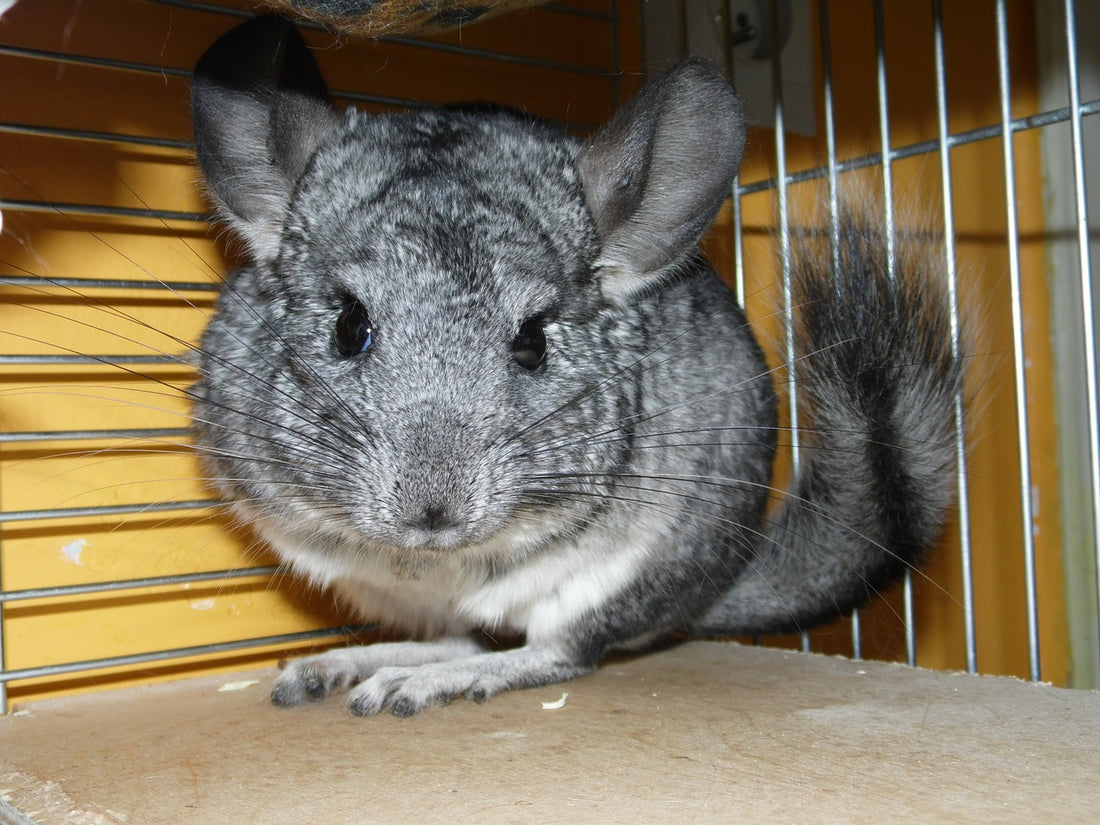Pet Chinchillas may exhibit a variety of troublesome behaviours. These are usually the result of inappropriate care or inadequate housing as chinchillas have complex needs. If your chinchilla is showing signs of distress then it is important to identify the cause and it just might be you!
Fur chewing
Chinchillas may begin to obsessively chew their own fur, often on their back or sides. The fur then becomes short and matted. This behaviour can be caused by the presence of parasites but is more commonly a symptom of stress.
Chinchillas can become stressed if their cage is too small, if it is not cleaned regularly or if it is overcrowded. These animals may also feel stressed if they do not have ready access to a nesting box and a dust bath.
Repetitive Movements
Spinning, repetitive pacing and the chewing of cage bars are behaviours which are usually signs of stress or frustration. They may be the result of boredom or insufficient exercise. If your chinchilla is showing such signs of stress then increase the size of their exercise area and include more diversions such as boxes and tubes.
Change the elements in the exercise area regularly to create a more stimulating environment and hide treats for your chinchilla to search for. Research has shown that repetitive movements tend to be more common in smaller populations of chinchillas. If your pet is stressed it could be due to a lack of company.
Aggression
Chinchillas can become aggressive towards both their cage mates and their owners. Aggressive behaviour can include lunging, biting and vocalisations. Aggression towards cage mates could be due to a lack of exercise and so this problem can be addressed by increasing the size of your chinchilla's exercise area and giving them more frequent access to it.
If your pet is aggressive towards you then this may be because their cage is too small. Chinchillas in small cages have less space to retreat to in order to escape perceived threats and this can make them feel defensive.
Small cages can also lead to frustration which may manifest itself as aggression.
Don't Ignore the Problems!
Chinchillas are demanding pets which require the proper diet and sizeable accommodation. They need plenty of physical and mental stimulation and should be kept in compatible groups in order to thrive.
Their behaviour is yet to be fully understood but any issues can usually be attributed to a poor environment. If you are concerned about your pet then seek advice from your vet in the first instance as is it is important to rule out any medical problems.
If your chinchilla receives a clean bill of health then you will have to set about improving their environment. You should never ignore the problems because they are unlikely to be resolved without your intervention.

